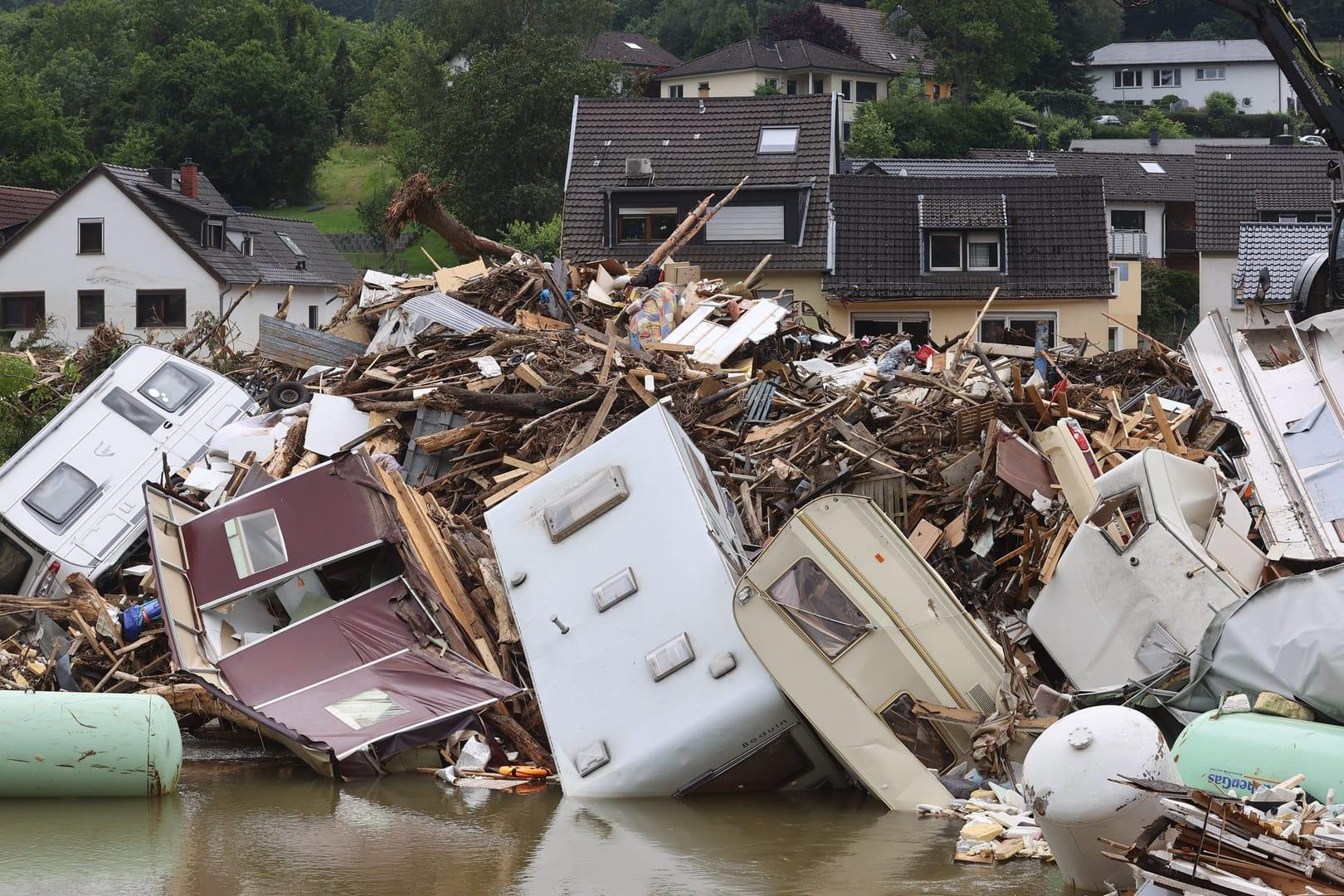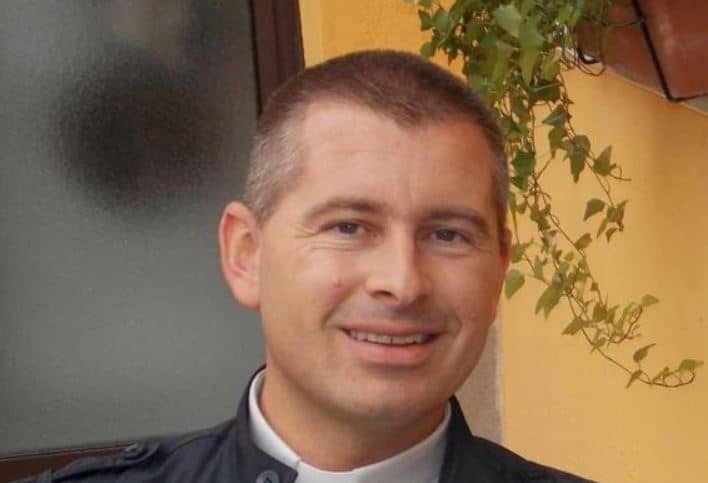ROME – With hundreds dead or missing and billions of dollars of damage in Germany in the wake of recent flash flooding, one Catholic organization assisting in relief efforts has said the situation on the ground is more like a warzone than a natural disaster.
Speaking to Crux, Douglas Graf von Saurma-Jeltsch, president of Malteser International Europe, a charitable organization run by the Order of Malta, said recent floods in western Germany are “like a bomb” that detonated.
“Entire houses have been taken away, parts of houses have been taken away, streets are completely destroyed, the infrastructure has been destroyed – no water, no gas, no telecommunication. All of that is more like a World War II scenario than flooding,” he said, adding, “That’s an extent of disaster we’ve never seen before.”
Last week a slow-moving weather system unleashed two months’ worth of rain in two days in western Germany, causing almost instant flash-flooding that left many people trapped in their homes, vehicles, or elsewhere, and causing catastrophic damage.
So far, authorities have confirmed at least 171 fatalities, of whom 123 come from the Ahrweiler district in Rhineland-Palatinate alone. Some 764 people have been injured, and an additional 155 people are still missing.
Sabine Lackner of the federal agency for technical relief, a volunteer organization belonging to Germany’s interior ministry, said recently that she “did not expect” rescuers to find more survivors.
“We are currently still searching for missed ones, as we are clearing debris or pumping out cellars,” she said, “But sadly, at this stage, it is very likely that victims can only be recovered and not rescued.”
In the Ahr valley and neighboring North-Rhine Westphalia regions, roughly 40,000 people are believed to have been affected by the floods, which have left thousands without access to drinking water, gas, and electricity.
There is also growing concern over a shortage of medical staff and supplies in the affected areas, as transportation routes have been damaged or destroyed, and some 20 medical facilities in the area have closed as a result of the floods.
The German Insurance Association estimates that this year’s floods have caused some 4-5 billion euros ($4.7-5.8 billion) worth of damage. In 2002, when the Elbe River breached its banks in eastern Germany, it caused €4.65bn worth of damage.
However, according to Saurma-Jeltsch, what makes this year’s flooding worse than past floods in 2002 and 2013 is the speed at which it happened.
“In this case, the water came within seconds, within minutes,” he said, meaning people saw the water start to seep under the door, and by the time they ran upstairs to grab a passport, the ground level was already flooded, making it impossible to leave the house either due to water levels or intense water pressure keeping the door shut.
“We haven’t seen anything like this since 1962, when there was a huge flood coming from the North Sea in Hamburg” that claimed the lives of 315 people and destroyed roughly 60,000 homes, Saurma-Jeltsch said.
Pope Francis on two occasions has voiced his closeness and concern for those affected by the floods, which have struck Germany, Belgium, and the Netherlands.
In a telegram sent last Thursday, Francis said he was “deeply affected” by hearing “the news of the severe storm and floods in North Rhine-Westphalia and Rhineland-Palatinate” in Germany.
During his Sunday Angelus address, the pope said he was praying that “the Lord may welcome the deceased and comfort their loved ones, may he sustain the efforts of everyone who are helping those who have suffered serious damage.”
Saurma-Jeltsch said the pope’s words have been a great comfort to the people of Germany, and that “people are taking it very seriously.”
“I think that those who listen to the pope and those who are open to his message are taking this as a form of support and are valuing that very highly,” he said.
In terms of relief efforts, Saurma-Jeltsch said that Malteser International is providing both immediate relief, and fundraising for the long-term recovery.
With around 10,000 trained volunteers, the organization has assisted in first-response efforts, rescuing people from their homes or cars, tending to their injuries, and helping to relocate people who were stuck in precarious places and had to be moved.
In several areas, rest homes for the elderly, schools, and even hospitals had to be evacuated fast as nearby dams threatened to break.
Malteser International is also supporting other charitable and state-run organizations such as the fire department, the Red Cross, the Order of Saint John, and others, to provide food and shelter. They are also seeking donations for individual cases, as some of those affected will receive help from the state or through insurance, and others will not.
Psychological support is also being offered to both flood victims and volunteers, Saurma-Jeltsch said, “because in this case, they were forced with recovering dead bodies out of cellars, out of cars, and for many of them, this is not their daily job, they are volunteers and have not been exposed to such cruelty and situations before.”
After immediate relief is provided, next steps will involve providing concrete support to institutions and organizations such as hospitals, rest homes, and schools, which are critical to the local infrastructure and need to be rebuilt quickly “so that people can pursue normal lives again.”
Yet in addition to the damage, Saurma-Jeltsch said “a great positive sense of solidarity” that has emerged amid the tragedy.
“Neighbors are helping neighbors cleaning up their cellars, people are volunteering to come down…There’s been a huge amount of donations, clothing, toys for children, that are being given from all over Germany to help victims, people who post their internet passwords in their windows so people can use their internet to contact their families to say they are alive and okay, because obviously telecommunications has also broken down,” he said.
Another positive thing to come out of the flooding, Saurma-Jeltsch, is that is has been “a bit of a wakeup call in terms of climate change,” something that has dominated discussion in the country’s upcoming national elections in September, and which will likely become an even bigger issue now.
In this sense, the floods “will, and should, be politicized,” he said, noting that Malteser International has recently rolled out a climate initiative for 2022 with the aim of making the organization carbon neutral.
“I can’t say I’m happy to see that because of this disaster people are taking it more seriously, but it will definitely have an effect on the entire development, also in politics,” he said, voicing hope that “people and society are going to be more willing to accept changes in their daily lives.”
What people have to understand, he said, is that climate action is “better for our world, and it’s better for our people; it’s not just people living in the Sahara, but it actually concerns us in Germany as well.”
Follow Elise Ann Allen on Twitter: @eliseannallen

















